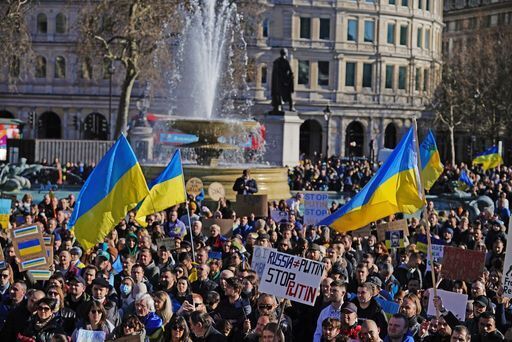Last Monday, the government announced that they would lift all Covid-19 restrictions and return our fundamental freedoms for good.
Today, there is a chance that they might just take them straight back again. At least, those related to protest.
The controversial Police, Crime, Sentencing and Courts Bill returned to the House of Commons last night for more debate about, well, the right to debate. For months, human rights experts from across the political spectrum have been loudly voicing concerns about how the Bill will stifle the right to protest and place Covid restrictions on individual liberties on permanent footing.
The Bill, after all, would allow law enforcers to ban citizens from causing what might be interpreted as “serious unease” on the street. As tempting as this might sound, it might beg a little time for self-reflection on most of our parts. We’re all annoying to someone. The beauty of a democracy is that we can all hold different opinions. A law this ambiguous might have been theoretically intended to block Extinction Rebellion from what Boris Johnson described as “littering” the streets with “heaving hemp-smelling bivouacs”. In practice, it could censor anyone simply expressing a viewpoint deemed unpopular.


In short, the Bill could turn public spaces into real-life Twitter, with cancellation and censorship just a misinterpretation away. JK Rowling beware. The real-life cancel mob is about to be armed with legal teeth.
Thankfully, members of the House of Lords already made commendable progress on the Bill last month by amending many of the problematic clauses which endanger free speech – not least, the very provisions that criminalised speech that merely risks causing subjective “serious unease, alarm or distress”.
Today, the House of Commons has a chance to endorse those efforts. But the Government indicated in last night’s session that they will be pushing back against what many would see as a free speech victory in the House of Lords. The same government, that has an unabashed commitment to championing free speech across the world appears inexplicably to be eroding the protection of fundamental rights to a worryingly low degree.
Fully aware of the civil liberty concerns highlighted by many, including senior backbenchers, the government has nevertheless sought to double down on their original proposals – highlighting the need for increased police powers to tackle serious disruption and reassuring members that they are still a government committed to protecting civil liberties.
Yet, what is perplexing is why the government has refrained from simply making their assurances plain on the face of the Bill. Why has the government ignored the concerns of senior police officers who have indicated that they do not want to be the intolerable position of enforcing value judgments?
Notable in its absence is a catch-all protection for freedom of speech which would allow the government to achieve its objectives whilst, at least in part, address those concerned about the erosion of expressive rights.
Senior officers have already expressed their concerns about judging what speech might make someone feel “uneasy”. Instead of dropping police officers into this impossible situation, why not use the Bill as a vehicle to mandate specific training on fundamental rights to ensure they wield their newfound powers in accordance with the law?
With the right treatment, the bill could present an opportunity to include a foundational and robust free speech protection into existing public order law. A move that is entirely consistent with the government’s pledge to strengthen freedom of expression and which would reassure critics that this is a bill with the primary aim of tackling serious public disorder.
If MPs want to use their electoral power to really return freedom to the people, now is the time to speak up – before we must forever hold our peace.












